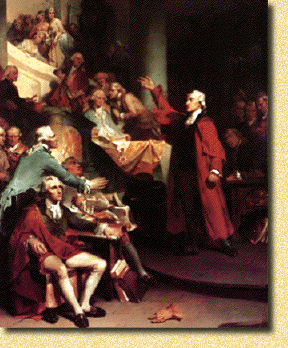Salutary or Benign Neglect

“Salutary neglect” was the unwritten, unofficial stance of benign neglect by England toward the American colonies. On the whole, the colonists were relatively autonomous and were allowed to govern themselves with minimal royal and parliamentary interference. The colonies, in turn, fulfilled their role in the mercantilist system as the suppliers of raw materials for manufacture in England and as markets for those finished goods. Before the passage of the Navigation Acts, England was limited in its influence over the remote colonies due to its distance and a number of more pressing regional concerns. The Navigation Acts were an attempt to end the period of salutary neglect and create a coherent imperial policy. The Acts were poorly enforced, and the implicit policy of neglect continued until the end of the Seven Years War in 1763. By this time, however, the colonists had developed a tradition of self-government and the attempt by England to tighten the reigns of political control with the imposition of tax and trade regulations added to the tensions spawned by the French and Indian War (the North American theater of the Seven Years War). Some historians argue that the policy of salutary neglect gave the American colonists a degree of independence that led directly to the American Revolution.
http://theomahaproject.org/module_display.php?mod_id=161&review=yes#1769
British North America Powerpoint.ppt
According to 18th-century British constitutional theory, it was the "balance" of powers in government which safeguarded liberty. There was a monarchial element (the Crown), an aristocratic element (the hereditary House of Lords), and a "republican" or "popular" element (the House of Commons). Only measures passed by both houses and signed by the king or queen had the force of law. Two of the three elements in this "mixed" form of government exemplified the principle of hereditary rule. The monarch inherited his or her throne, and the members of the House of Lords also inherited their titles and offices. No one could claim a seat in the House of Commons by hereditary right. However, unlike our modern notions of election, the actual processes by which members of Parliament were chosen were diverse, sometimes almost incomprehensible. In theory they represented all the "common" people of the realm. In reality, members of the House of Commons were themselves usually members of the aristocracy. Most British citizens did not vote. I
Government in the royal colonies in North America was modeled on the British system, the royal governor standing in for the Crown, a royally-appointed council taking the place of the aristocratic House of Lords, and the elected assembly representing "the people." All of these should in theory have "balanced" one another, "the people" holding a share, but only a share, of the power. In practice, however, the royal governors -- even when supported by their councils -- found themselves confronted by lower houses which aggressively sought to limit governors' powers and enhance their own. In the colonies most males could vote. Further, as population shifts occurred, new seats in the lower houses were created so that the assemblies fairly accurately represented the entire population.
In 1765, in the wake of its great victory in the Seven Year's War (known as the French and Indian War in the American colonies), Great Britain set about putting its imperial house in order. Retiring the debt was a major priority, and the Stamp Act was one of several revenue measures designed to get the colonies to pay a greater share of the costs of empire. Colonists refused to pay the new stamp tax. Instead they organized a boycott of British goods and proclaimed that Parliament lacked the power to tax them, something only their own colonial legislatures could legitimately do.
Neglect, benign or other, ended with the defeat of France in the Seven Years' War. When Parliament in 1765 tried to impose taxes on newspapers, playing cards, and legal documents, the elected assemblies in each colony led a broadly-based and increasingly unified resistance movement. So fierce was local resistance that most agents resigned their commissions, and no one made a serious effort to collect the tax. In addition, colonies adopted non-importation agreements which were, in effect, boycotts of British goods until the Act was repealed.
Colonial condemnations of the Stamp Act not only affirmed the principles put forth by John Locke -- and universally accepted in Britain -- that taxation must rest upon consent, but went on to insist that the colonists were not represented in the House of Commons, and thus could not be taxed by Parliament. Colonial assemblies sent representatives to a Stamp Act Congress which proclaimed:
- That it is inseparably essential to the freedom of a people, and the undoubted right of Englishmen, that no taxes be imposed on them, but with their own consent, given personally, or by their representatives.
- That the people of these colonies are not, and from their local circumstances cannot be, represented in the House of Commons in Great-Britain.
- That the only representatives of the people of these colonies, are persons chosen therein by themselves, and that no taxes ever have been, or can be constitutionally imposed on them, but by their respective legislatures. (See The Declaration of the Stamp Act Congress)
http://www1.assumption.edu/users/mcclymer/His130/P-H/stampact/default.html